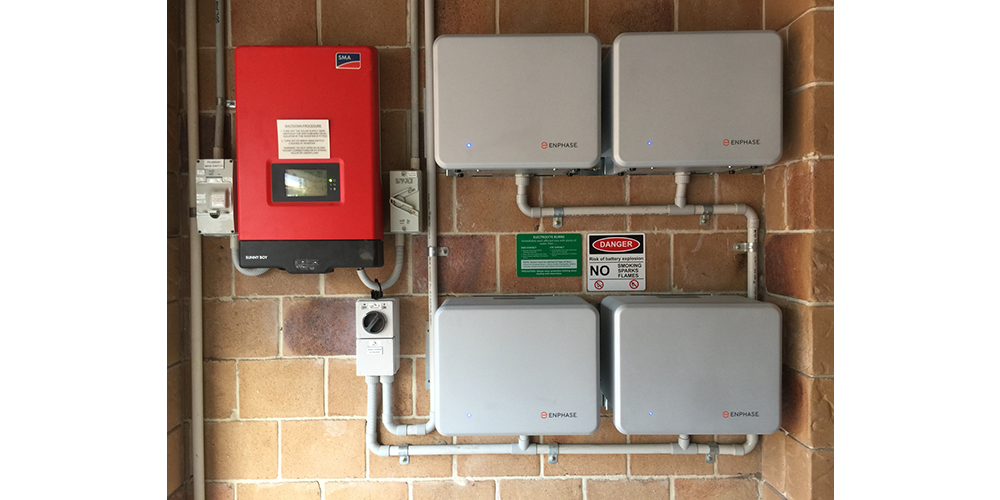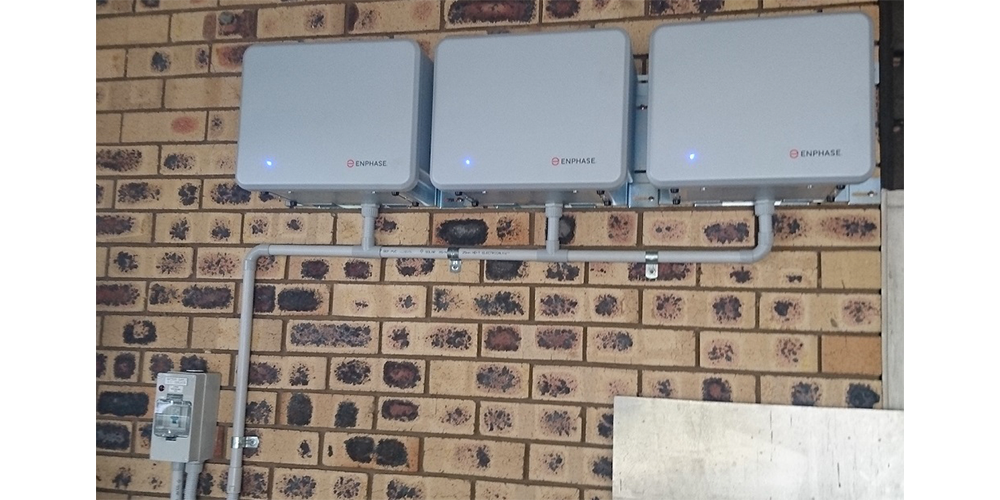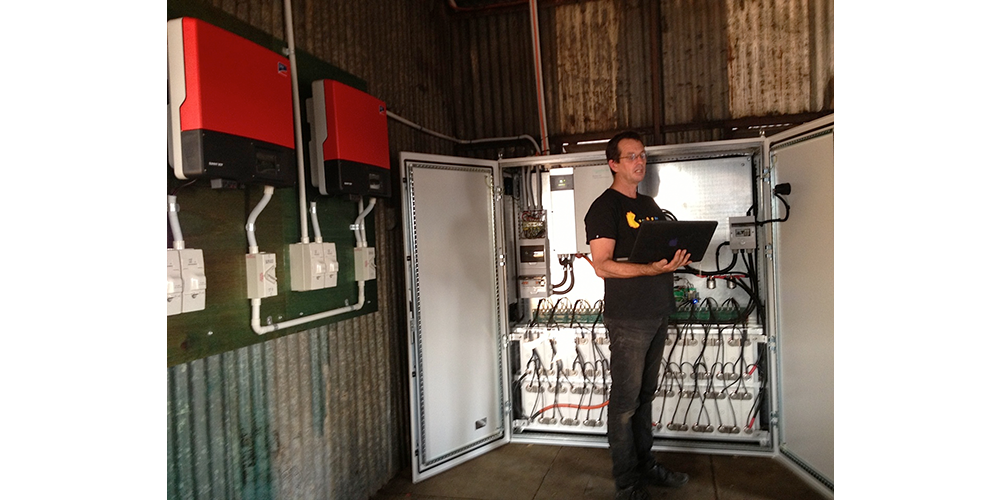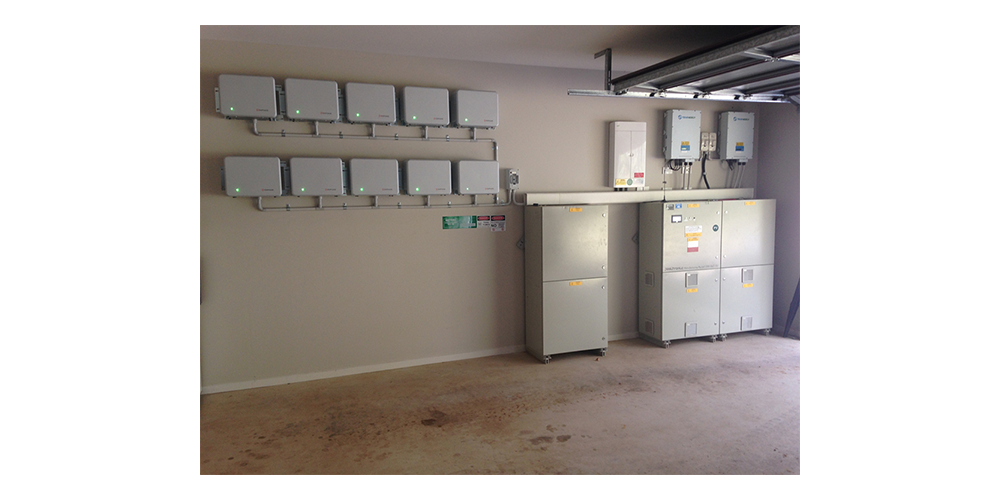ENERGY STORAGE SYSTEMS
These systems are great for both on and off-grid home solar systems or business solar systems. Positronic Solar Data and Electrical renewable energy storage systems are state of the art.
The Basics
Energy Storage Systems (‘ESS’) are designed to capture and store excess energy that your solar panels produce. The power is stored in specially designed batteries, which release power when the power generation of the panels don’t meet the demand, like at night or in a storm.
If you installed a large enough battery system you could live off-grid, that is, you would never have to buy power again.
The Battery
The most important component of an ESS is the battery.
Undersizing leads to excessive discharge, oversizing makes the system unnecessarily expensive.
Charging or discharging too quickly reduces the life of the battery as does discharging the battery to a very low level. Temperature is another very important factor, particularly in Queensland. Lithium batteries in particular cannot handle high temperatures.
For on grid hybrid batteries we use the Enphase AC batteries. Each battery has nine 3.2V 50Ah cells and the battery delivers 1.2kWh at a maximum rate of 10 amps on the DC side. This means the battery has a reasonable depth of discharge given the C rate. Enphase batteries have a 10 year warranty.
We’re also using Enphase batteries to increase storage capacity of existing off grid systems. Paralleling a new battery to an older battery results in both batteries dying quite quickly. Enphase batteries couple on the AC side, so they can be integrated with existing storage and as a bonus add AC demand capacity to the system.
Off grid battery design requires experience and careful consideration of customer loads, maximum demand, maintenance and climate. Unfortunately, due to the popularity of battery storage, many inexperienced people are providing poor advice and installations.
If you’re going off grid you rely on your system to keep the lights on and the fridge cold.
A reliable off grid system is not cheap. A ‘rule of thumb’ pricing for a 25kWh/day house starts at $50,000. Too many $25,000 systems fail in twelve months or less, usually because of undersized batteries.
Lead batteries cannot be discharged lower than 20% on a daily basis. For example, a set of gel batteries designed for 15kWh of usable storage should be a minimum of 48V 1600Ah. If you’ve got a 25kWh/day load, as well as the 1600Ah of battery you’ll need a minimum of 12kW of panels to keep the lights on in overcast weather.
Which Battery?
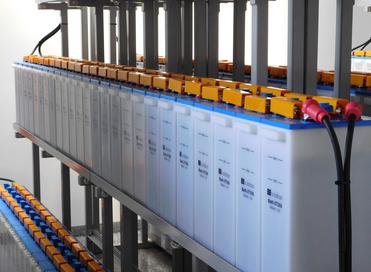 On grid hybrids – Enphase AC Batteries are easily the most suitable.
On grid hybrids – Enphase AC Batteries are easily the most suitable.
They’re modular, so you can add batteries as your loads increase. Their design ensures a long, uncomplicated life.
Off grid – the answer depends on the installation.
Wet lead acids are the most economical and a properly designed and maintained battery should last 10 – 15 years. They can handle occasional deep discharges and can be ‘brought back to life’ if they get really crook. Wet Nickel Iron cells will last a lot longer, 18 – 25 years, but they cost more and take up a lot more room. Wet cells, NiFe or PbSO, can handle high temperatures much better than either sealed Lithium or lead batteries.
Sealed ‘maintenance-free’ batteries get uncomfortable above 35 degrees and can be damaged above 40 degrees. If they’re damaged they can’t be coaxed back to life. The only advantage sealed lead acid batteries have over wet cells is you don’t need to keep the water up to them. This is easily addressed with a self watering system and reservoir. Their big disadvantages are less usable kWh per Ah of battery capacity and a shorter life, about 80% of wet leads.
Prismatic Lithium batteries with a proper battery management system are very compact and highly efficient taking a charge. A properly designed system should last about ten years.
My recommendation would be for nickel iron batteries if the budget will stretch, otherwise wet lead acid. Properly designed these systems will last for a long time and end of life recycling is environmentally acceptable.
Whether your on or off grid, a data logging system that allows you to monitor your system’s performance over it’s lifetime is essential.


